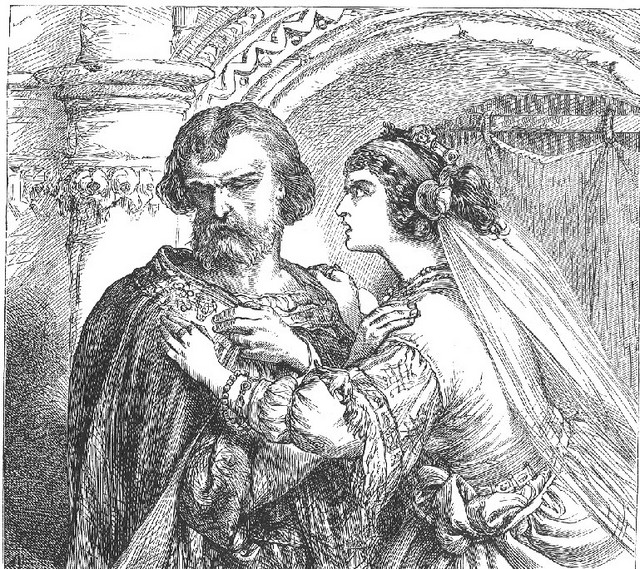
"There is a kind of merry war betwixt Signior Benedick and her. They never meet but there's a skirmish of wit between them." (I, i)
Leonato provides exposition for the relationship between Benedick and Beatrice and one of the conflicts of the play, and sets the tone for that conflict. Leonato’s use of war as a metaphor is apt since Benedick is a soldier, and foreshadows the contrast between being a soldier and a lover as discussed later in the play. The paradox of a 'merry war' sums up a view of love: that it is competitive, but at the same time light. This sets the context for the relationship between the two characters and lets the audience know that their respective jibes are not to be taken seriously. Beatrice has already made insulting comments regarding Benedick (contrasting the praise the messenger has heaped on him), and so the audience sees her as a shrew, but Leonato's explanation contextualizes her behaviour and makes it less threatening. Leonato follows this exposition with the further explanation that they engage in a 'skirmish of wit' when they meet, and Beatrice’s play on words on the lost wits of Benedick illustrate her use of wit. This is contrasted in the scene with Hero’s lack of verbal interaction generally, encouraging the audience to see Hero and Beatrice as foils.
199 words






